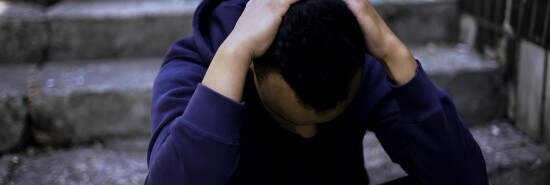
The friendship recession is bad, and not just for the friendless
Timothy P. Carney
Video Embed
The public today has fewer friends than it did a generation ago. Pollster Dan Cox of the Survey Center on American Life has identified a “friendship recession,” particularly among American men.
“The percentage of men with at least six close friends fell by half since 1990, from 55 percent to 27 percent,” Cox writes. “The study also found the percentage of men without any close friends jumped from 3 percent to 15 percent, a fivefold increase.”
THE LEFT’S LATEST CRAZY PLAN TO KEEP TRUMP OFF THE BALLOT
New data from the Survey Center suggest that there is a broader societal cost to this friendship recession. The more close friends you have, the more likely you are to talk with strangers in the neighborhood, to volunteer, to go to church, to frequent your local coffee shops and bars, and to attend local events and meetings.
That is, the people who make a community strong and vibrant are the people with lots of friends. Thus, Cox concludes, “America’s ‘Friendship Recession’ is weakening civic life.”
There are a few ways to interpret this correlation, though. One is that both friendship and civic engagement are the consequence of certain innate personality traits.
Some people are naturally more friendly and outgoing, and those people, thanks to their gregarious nature, are more likely to have friends and more likely to volunteer. On the flipside, some people are, just by their inborn makeup, loners.
Surely, this is true to some extent. Every culture will have its loners or hermits, and every culture will have its social superspreaders. This doesn’t, however, explain the friendship recession because there’s no explanation for why we would have a growing number of natural loners.
Here’s a third possible causal relationship that explains our cultural changes: Civic engagement causes friendship, and civic disengagement causes the friend recession. The best way to make friends is to talk with strangers in the neighborhood, and so the retreat from civil society that I documented in my 2019 book Alienated America.
I think that’s definitely true. All sorts of social forces — technology, economic and governmental centralization, the loss of trust in institutions — are eroding the institutions of civil society. One result is that people have fewer friends, fewer marriages, and fewer children.
The best explanation, in my view, is that the causal arrow points in both directions. Our institutions are eroded, and so people become less civically involved; this makes it harder for people to have friends; people with fewer friends are less civically involved.
CLICK HERE TO READ MORE FROM THE WASHINGTON EXAMINER
As you can see, this is a vicious circle. This fits perfectly with Robert Nisbet’s definition of alienation: The alienated individual, Nisbet wrote, “not only does not feel a part of the social order; he has lost interest in being a part of it.”
So, alienation causes less friendship, which causes more alienation. It’s a grim tale.
